I will admit, when I bought my first plant it was strictly for aesthetic purposes, to add some life to my room. But quickly my windowsill with only one little Golden Pothos became packed with many others—and suddenly my room was overflowing with lush foliage.

Havi Stewart owns 25 plants of various sizes and species.
I was raised in a beautiful part of California, in a small town just outside of Yosemite National Park. As you might imagine, there is a whole lot of nature (and not much of anything else) so I found myself spending a lot of time surrounded by greenery. Growing up, I enjoyed spending time outside playing by the lake in front of my house, surrounded by forest on all sides, and going camping and hiking on the weekends.
I have always found a lot of comfort and peace in that setting, and studies have shown that seeing greenery and nature helps us feel more relaxed and calm. This is why it was important to me to bring some of that nature with me when I ventured into the (seemingly huge) city of Portland for college. While Portland is unique in that it has a fair balance of nature and infrastructure, it can still feel intimidating at times, with far more concrete than I am accustomed to. Pardon the puns, but having my houseplants with me has helped to ground me and take me back (quite literally) to the roots of my childhood.
Houseplants have been an aspect of society dating back to the early Greeks and Romans, gaining some more traction in the Victorian era and then blowing up in the 70’s. While plants are obviously trendy on Instagram and really pull together that “Pinterest-worthy” bedroom that we all aspire to create, houseplants also have many positive effects for our psychological and physical health.
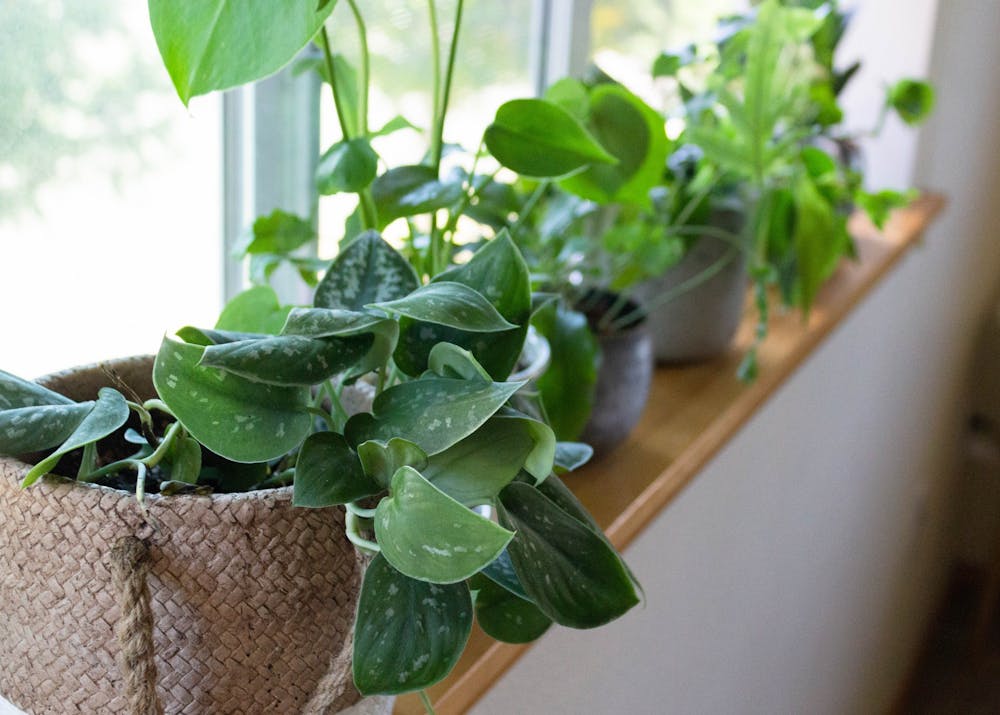
Beyond adding color and life to your living space, houseplants also have benefits for your health.
When we breathe, our bodies take in oxygen from the air around us and release carbon dioxide when we exhale. Plants do the opposite. During photosynthesis, plants absorb the carbon dioxide that we release and expel oxygen back into the air. Through this miraculous energy exchange, houseplants freshen the air and eliminate harmful toxins from your living space. Research by NASA has shown that houseplants can remove up to 87 percent of toxins in the air within 24 hours.
At night, when photosynthesis stops, most plants switch to absorbing oxygen and releasing carbon dioxide. However, a few plants like orchids, succulents, and snake plants continue emitting oxygen even through the night, which can help you attain the beauty sleep you’ve been longing for.
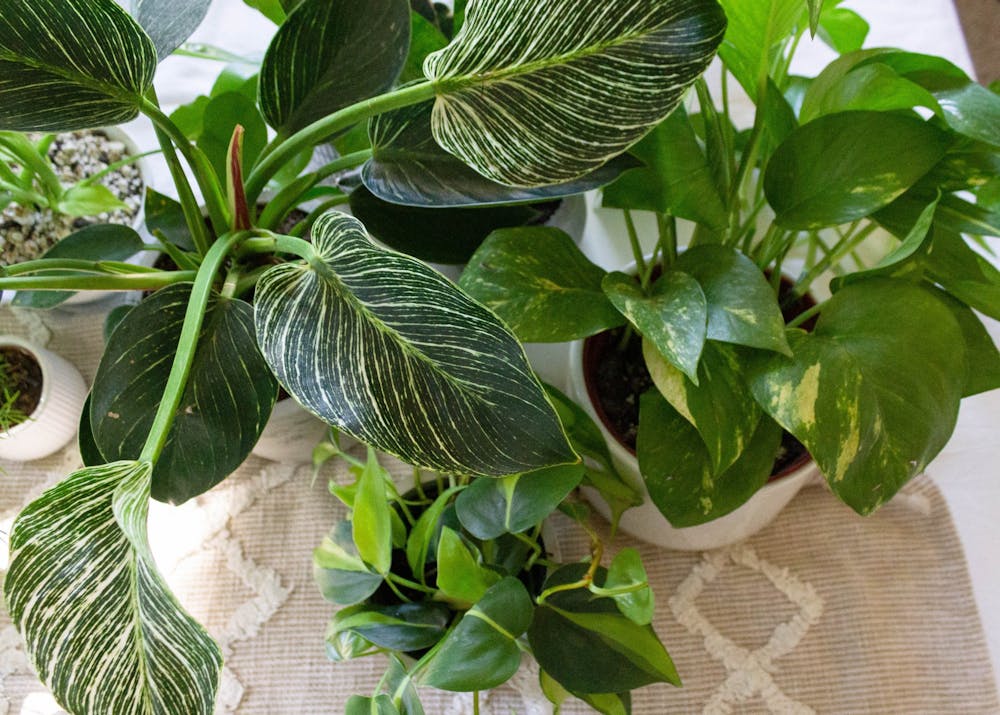
Plants perform the important task of cycling and filtering the air we breathe.
Indoor air pollution is also something we expose ourselves to every day. Most walls, paints, rubbers, and plastics break down over time and release compounds into the air. Plants absorb these harmful toxins as well, improving our overall air quality.
We are only beginning to understand the effects that poor air quality has on our mental health. But studies have shown that these multi-talented green machines have the ability to improve concentration, productivity, reduce stress levels and boost our mood. According to NBC news, indoor plants improve concentration, creativity, and productivity by up to 15 percent, and let’s face it, we all need that extra boost right now with distance learning.
I can attest that even just looking at my plants can be calming when I am stressed or anxious. Whenever I need a break from school (which is frequently) I get up from my desk and see what plants need taking care of that day. It’s comforting in a way, knowing that there is something you have the ability to take care of and perhaps even love.
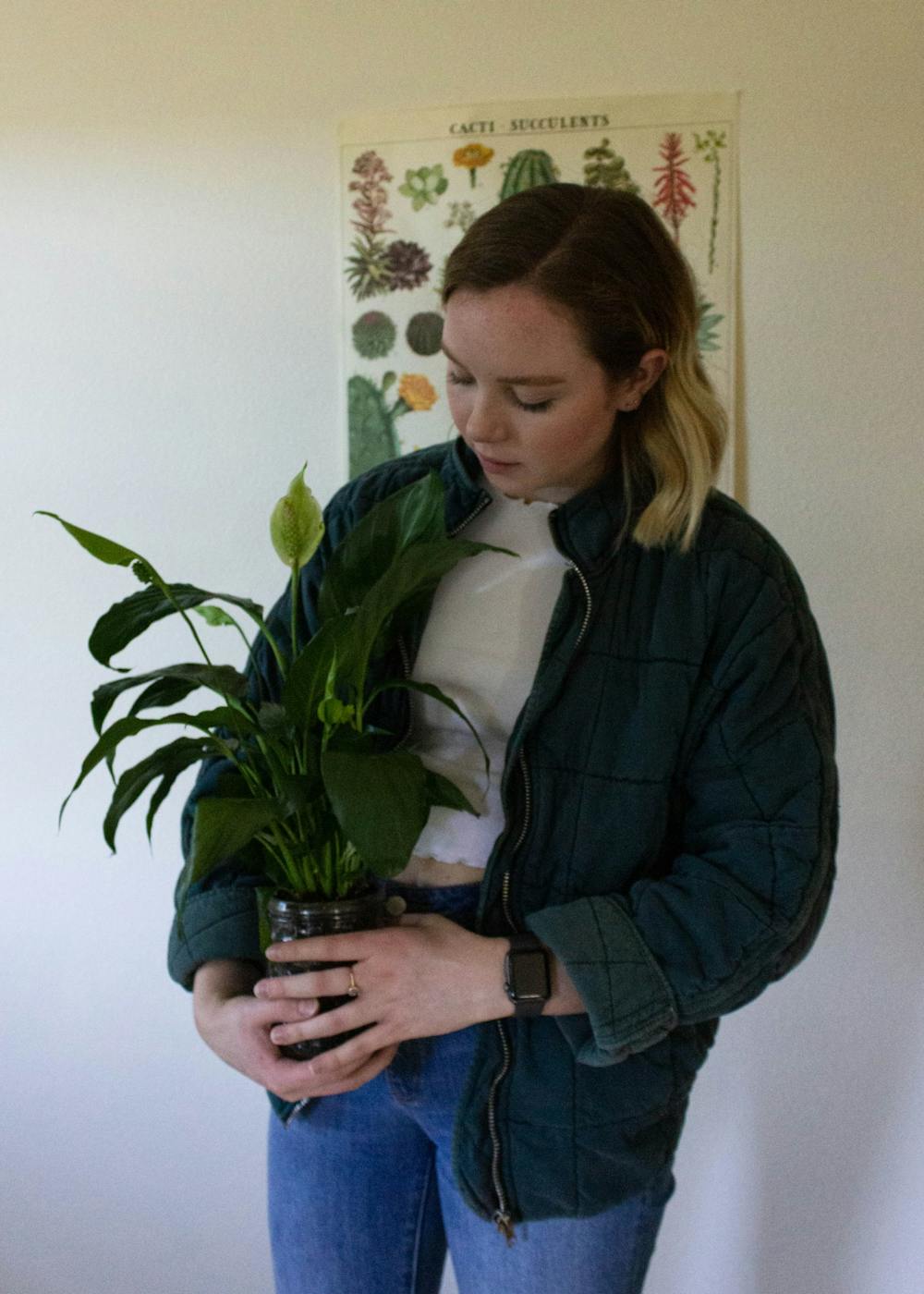
Peace lilies are common, low maintenance plants that purify the air.
There are many nurseries in the Portland area that have a great inventory of plants. Some of my favorites are Pistils Nursery, Hammer and Vine, Solabee Flowers & Botanicals and Dennis’7dees. Local grocery stores like Fred Meyer, Trader Joe’s, and New Seasons are also great options for plant shopping. There are also websites that deliver plants straight to your door; two that I really like are The Sill and Bloomscape.
The selection at nurseries can be overwhelming if you are new to the world of houseplants. Here are my recommendations of good plants to start with, that are (almost) impossible to kill:
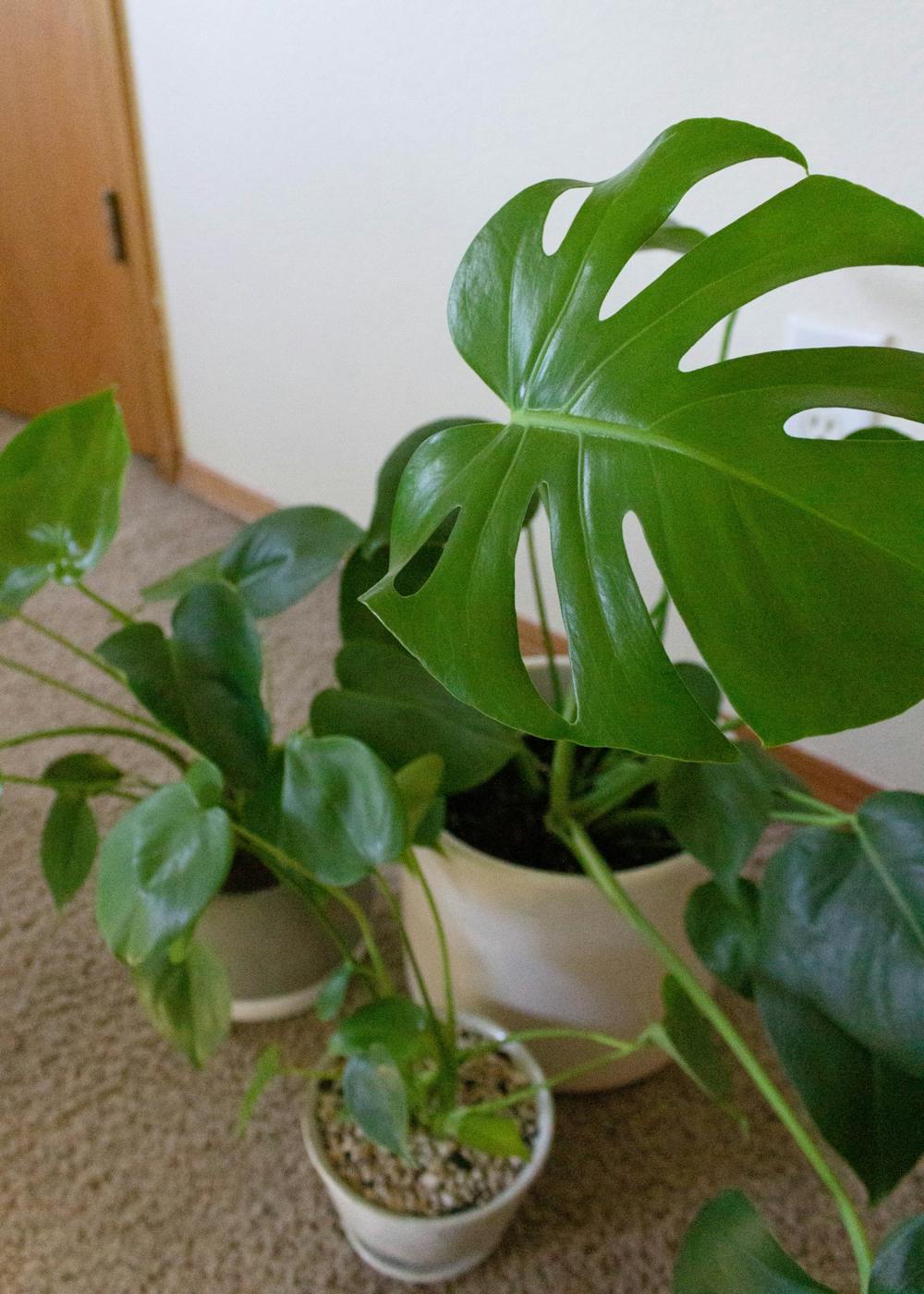
Monstera plants are a classic houseplant that are easy to care for.
Monsteras: Monsteras are some of my favorite plants. With amazing split leaves, the Monstera has a vibrant and unique look. Monsteras are fairly low maintenance tropical plants that can bring some real beauty into your living space as well as purify the air. I have three Monsteras and somehow I still immediately gravitate to them when browsing local nurseries.
Pothos: Pothos are so beautiful and can grow vines that are up to 10 feet long. They are low maintenance and good for beginners. Mine has proven to be quite resilient, even surviving many attacks from my housemate’s cat.
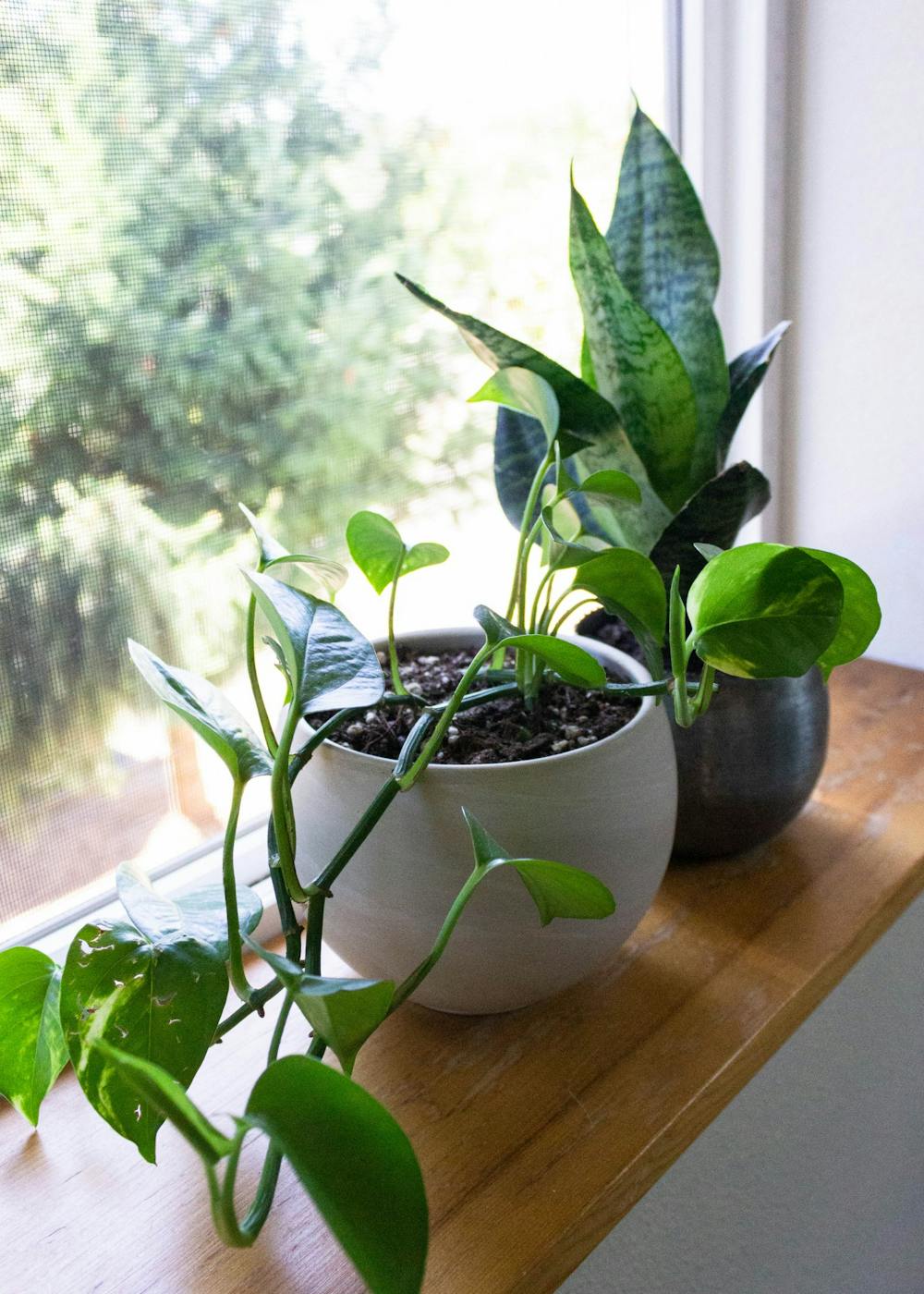
Pothos plants (left) and snake plants (right) are common houseplants that are easy to keep.
Snake plants: These plants are very low maintenance and are expertly efficient for air purification because they continue releasing oxygen at night after most plants switch to emitting carbon dioxide. My snake plant is one of my easier plants, I only water it about once a month, and it maintains its beautifully patterned leaves sticking straight to the ceiling.
If you need a plant that is even more low maintenance and can tolerate the neglect of a busy or distracted college student, succulents and cacti are great options.
I am a lover of plants, unquestionably, but not an expert in them. In fact, I struggle with keeping my ferns from crumpling to an untimely death, however, I am always trying to learn new ways to improve my plant care.
Even with the sting of that occasional heartbreak, if you don’t already have a plant gracing your windowsill, I urge you to take that baby step and get a houseplant. I think you will be pleasantly surprised with the change it makes to your living space, and more importantly, your mindset. And worst case scenario, if you find out being a plant parent just isn’t your thing, you can always drop it off on my doorstep and it will be happily adopted into my plant family.
Havi Stewart is the living editor for The Beacon. She can be reached at stewarth22@up.edu.
Have something to say about this? We’re dedicated to publishing a wide variety of viewpoints and we’d like to hear from you. Voice your opinion in The Beacon.








